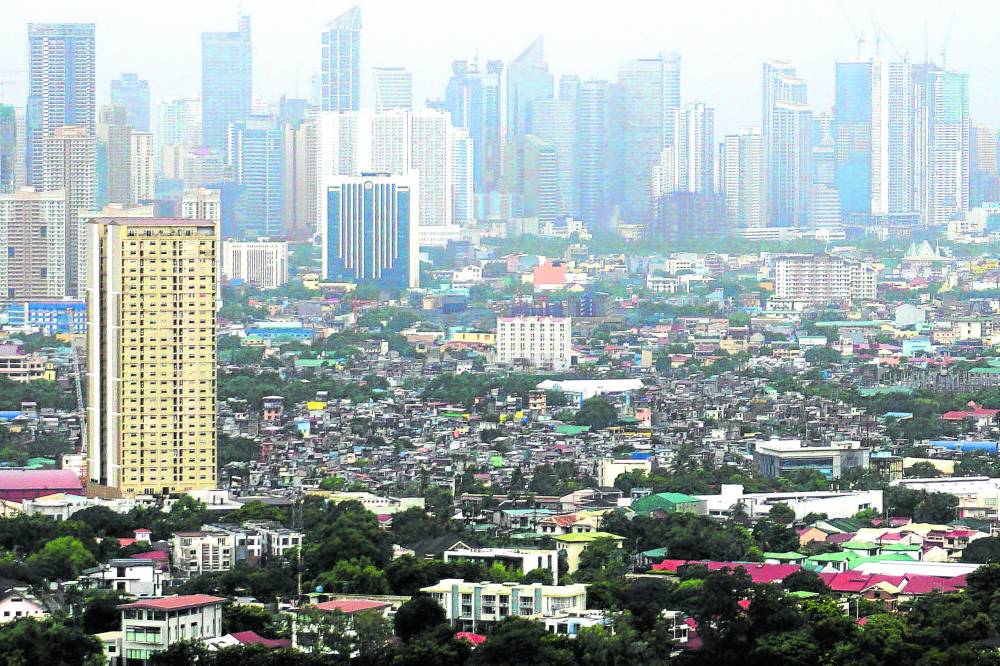Outlook for the Philippine real estate sector remains upbeat as stakeholders anticipate a more robust level of activity this year, primarily due to the expected economic recovery and the continued rollout of vaccines nationwide.
Despite the mixed performance of the different segments, property consultancy firms are generally more positive amid ongoing and forecasted developments: the expected massive return to offices this year, impending amendments to key legislations, emergence of new bright spots in the sector, as well as improving business and consumer sentiments.
Colliers Philippines said the property sector is primed for a turnaround this year, although it will be a “slow, gradual recovery.”
Several factors are seen to help support the rebound of the property market this year according to Colliers, including the government-forecasted growth, which in turn is expected to be fueled by increased infrastructure speeding, growth in overseas Filipino workers (OFW) remittances, decline in new COVID-19 cases, improved vaccination rates, and amendments to the Public Services Act which should attract more foreign investments.
Demand picks up steam
Similarly, Santos Knight Frank (SKF) believes that the Philippine commercial real estate sector is poised for recovery in 2022 amid the optimistic economic outlook for the country and the lifting of travel lockdowns.
“We will see a much more robust level of activity in the real estate sector this year, especially in key sectors such as industrial and logistics, real estate investment trusts (REITs), residential, and office. We are particularly excited about prospects for data centers and renewable energy, which we predict will see high levels of growth over the succeeding years,” said SKF chairman and CEO Rick Santos.
“Property players are preparing for their next move as the demand for real estate continues to pick up steam. From a capital markets perspective, REITs will continue to be an important option for property players to raise capital, and we can expect to see more REITs listed this year. There is also significant pent-up demand coming from foreign capital, and that will continue to put the country on the radar for investments,” Santos further explained.
Despite the mixed performance of the different segments, property consultancy firms are generally more positive.
Cautious optimism
Meanwhile, JLL Philippines, which saw a more stable office market and a better performance in the retail segment in the last quarter of the year, noted that the “Philippines’ real estate market is expected to move with cautious optimism in 2022 following the performance in leasing activities in 2021. Market sentiment is improving, but mixed outlook remains.”
“We also expect new supply or significant supply expansion in 2022 on office, retail, hospitality and residential to exert pressure in terms of real estate market performance,” said Janlo de los Reyes, head of Research and Consultancy at JLL Philippines.
“As the nationwide vaccination rollout goes full steam to effectively manage future spikes in COVID-19 infection and business activities slowly creep to normalcy, C&W Research expects a marked improvement in the investment environment in the medium term,” added Claro Cordero, director and head of Research, Consulting & Advisory Services at Cushman & Wakefield.
High growth property segments
Beyond the offices, residential, retail, hotel segments that have seen improvements in the last year, there are emerging sectors that offer promising prospects for developers and investors.
SKF cites in particular the data centers, which could potentially be the next high growth property segment amid rising interest among operators to invest in the country. Interests in the Philippines’ emerging data center sector may translate to an additional 125 megawatts of IT capacity. At present, the country’s total IT supply capacity is at 94 MW, it said.
According to SKF, the Philippines has been on the radar for data center operators primarily for the local population’s high digital consumption. Citing data from Hootsuite, the number of internet and social media users in the Philippines rose by 6.1 percent and 22 percent respectively between 2020 and 2021.
“The data center market in the Philippines is still at its early stages. Currently the market is dominated by our local telecommunication providers,” added Carl Dizon, senior analyst of JLL Philippines’ Capital Markets. “Data localization is requiring data collected from a population to be physically stored within the borders of the country. As it stands, majority of the Filipinos’ data are stored in data centers overseas.”
According to JLL, key predictions for the data center sector in 2022 include building data centers beyond Metro Manila, an increase in internet services, and more joint ventures between local developers and foreign operators.
‘Green growth’
One notable general consensus among consultancy firms is that environmental, social and governance (ESG) metrics are expected to influence investment decisions in real estate.
“New decision factors on investment transactions are expected to take center stage as the pandemic brought awareness on environmental, social and governance (ESG) metrics and the need to enhance business strategies due to the increasing digitalization of the new economy,” Cordero explained.
Santos also agreed that ESG will become even more relevant in the industry in 2022.
“The real estate sector is not just seeing green shoots but also a growing green movement across the industry. From net zero buildings to renewable energy assets, ESG is gathering pace as investors, landlords and occupiers incorporate ESG considerations in real estate decision-making,” Santos said.
